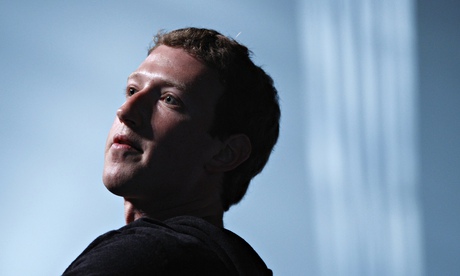
The first meeting of Mark Zuckerberg’s much-trumpeted online book club had quite a wind behind it. The Facebook founder’s realisation that books could be “very intellectually fulfilling … in a deeper way than most media today”, caused a wave of excitement as he announced plans to read a book a fortnight, encouraging us all to read along with his selections.
His invitation to his 31 million followers on Facebook duly prompted huge demand for his first choice, Moisés Naím’s The End of Power, seeing it zoom up Amazon’s charts and sell out double quick. The New York Post hurrahed: “Move Over Oprah”, and it even made an impression in these more cautious quarters. Wired magazine was a little more circumspect, suggesting he might have a way to go before commanding the full “Oprah effect” and automatically turning any book he recommends into a massive bestseller. “Zuckerberg still has a long way to go, but with more than 31 million followers at his fingertips, the young CEO has a decent shot at filling her shoes.”
It turns out those shoes are trickier to fill than many expected. According to the Washington Post, the first “meeting” of Zuck’s books – a Q&A session with the author – faced “a problem familiar to far more plebeian bookclubs: Hardly anybody showed up. (And of those who did, few had actually read the book.)”
Among the 137 ‘questions’ that followed: several requests for a pirated PDF of the book, a conspiracy theory involving Saudi social media and the price of oil and a photo of a Maltese wearing a frilly dress, along with many more on-topic, but still fairly stupid, questions.
Not quite the rumble of an earthquake in the books world, then. The Post puts this pretty spectacularly feeble showing down to Facebook’s algorithms, which – unlike Reddit or, ahem, the Guardian – not only display this kind of Q&A transcript “hopelessly jumbled by default”, but also buried news of the “meeting” somewhere in the feeds of 250,000 people who signed up for it. “Facebook had, in essence, hid its own news algorithmically.”
It might also have something to do with the book, as described in our review, being rather more complex than the thundering title (and cover design) might suggest. A study that cites Thomas Hobbes, Max Weber and Ronald Coase among many others may find itself on a lot of bookshelves with a strikingly uncreased spine.
But it is still a disappointing performance from a man widely considered to be a master of the universe. Is that the sound of Richard and Judy, currently un-networked, gently chuckling to themselves?

